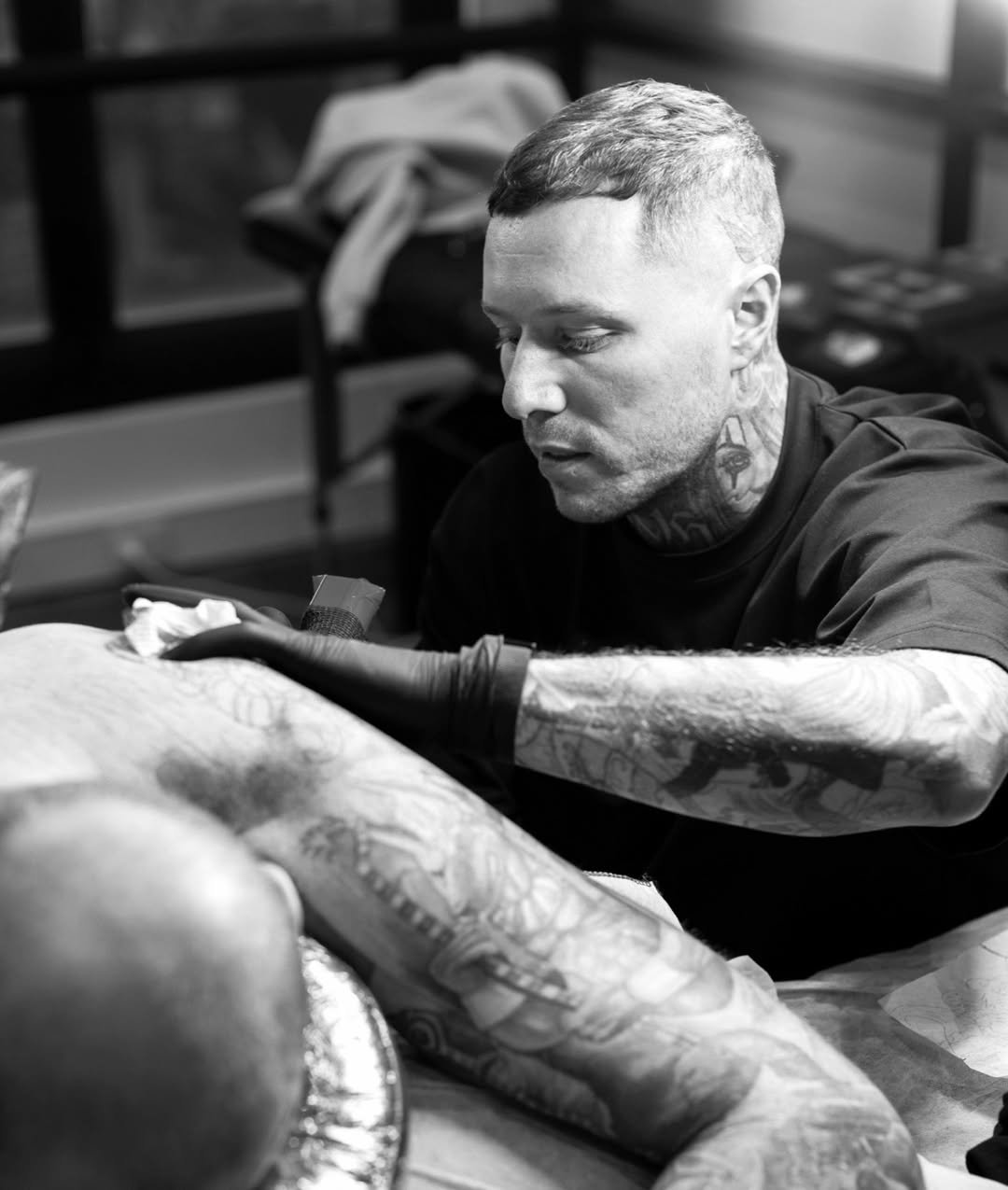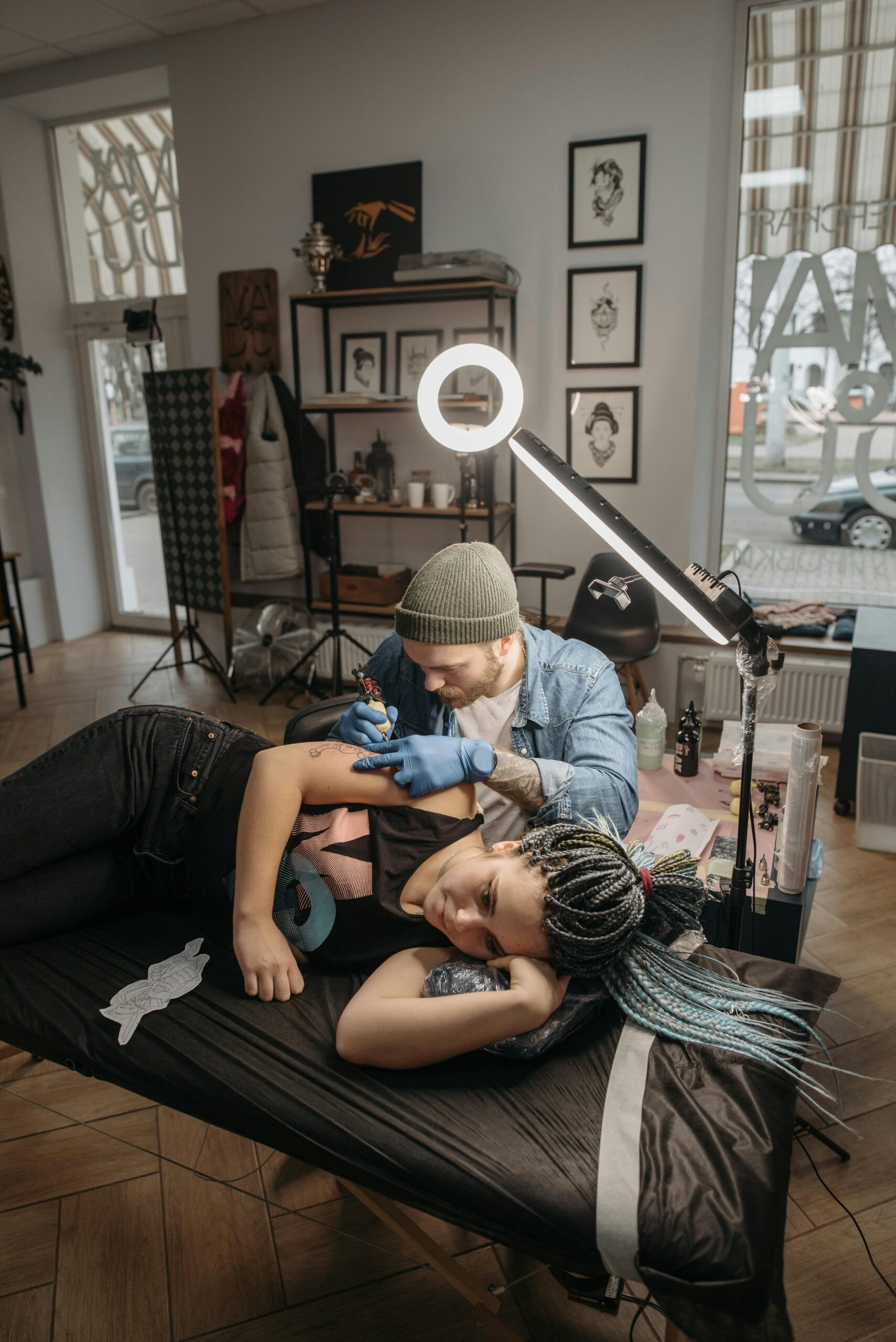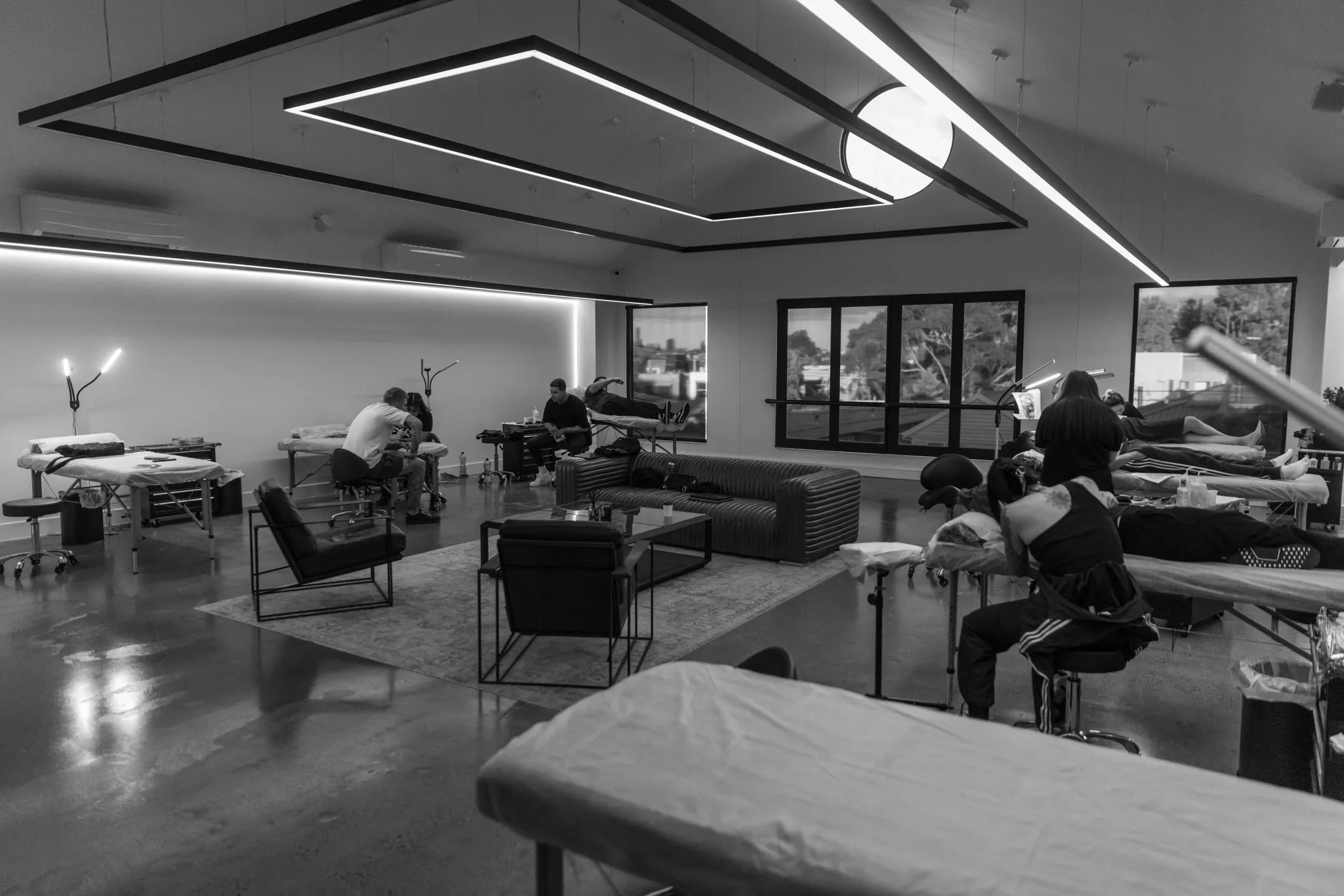The Mindset Revolution in Modern Tattooing
Fine line tattoos represent more than aesthetic preference—they embody fundamental shifts in how people conceptualise body art, self-expression, and identity. Understanding the psychology driving fine line choices enables artists to connect deeply with clients, creating meaningful experiences that generate loyalty and referrals. A comprehensive fine line tattoo course addresses these psychological dimensions alongside technical training.
The decision to choose fine line over traditional bold tattoos reveals specific personality traits, values, and life circumstances. These clients typically exhibit higher need for control, preference for subtlety over statement, and desire for timeless rather than trendy choices. They view tattoos as personal narratives rather than public declarations.
This psychological profile influences every aspect of the tattoo experience from initial consultation through aftercare. Fine line clients expect different communication styles, service levels, and artistic collaboration than traditional tattoo customers. Artists who understand and respond to these psychological needs build thriving practices with devoted followings.
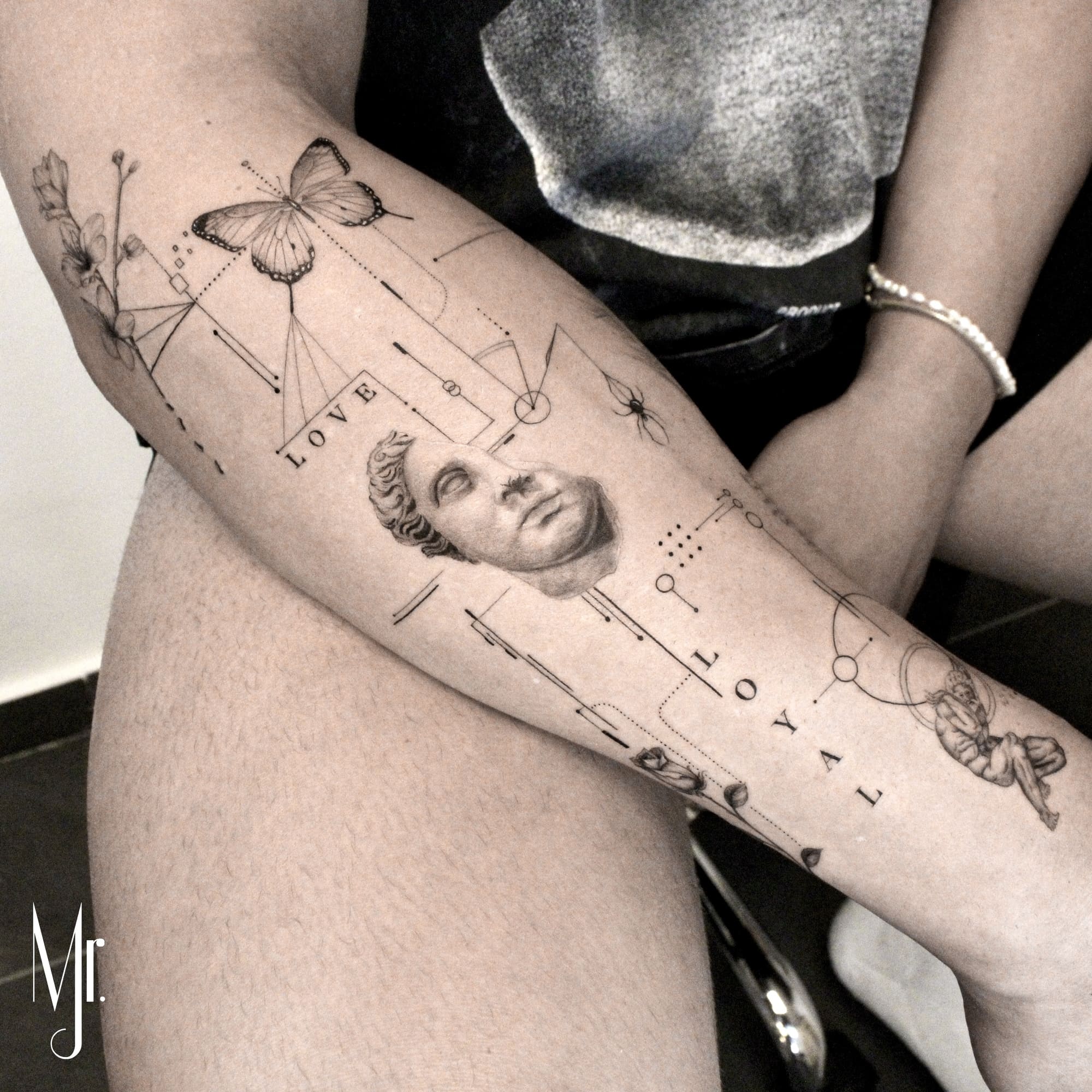
The Minimalism Movement and Identity Expression
Fine line tattoos align perfectly with broader minimalism trends influencing lifestyle choices across developed nations. Clients choosing fine line work often embrace minimalist philosophies in home design, wardrobe choices, and life approaches. They value quality over quantity, meaning over materialism, and subtlety over ostentation.
This minimalist mindset affects tattoo decisions profoundly. Rather than large, complex pieces, these clients prefer small, significant designs with personal meaning. They’re willing to pay premium prices for perfectly executed simple designs because precision and refinement matter more than size or complexity.
The psychology of “less is more” extends to visibility preferences. Fine line clients often choose placements that can be concealed or revealed selectively. This control over visibility reflects desire for agency in self-presentation—showing tattoos when appropriate while maintaining professional facades when necessary.
Understanding this minimalist psychology helps artists guide design decisions. Suggesting simplification often resonates more than adding complexity. Discussing negative space as design element rather than emptiness aligns with minimalist aesthetic values. These psychological insights improve client satisfaction and artistic outcomes.
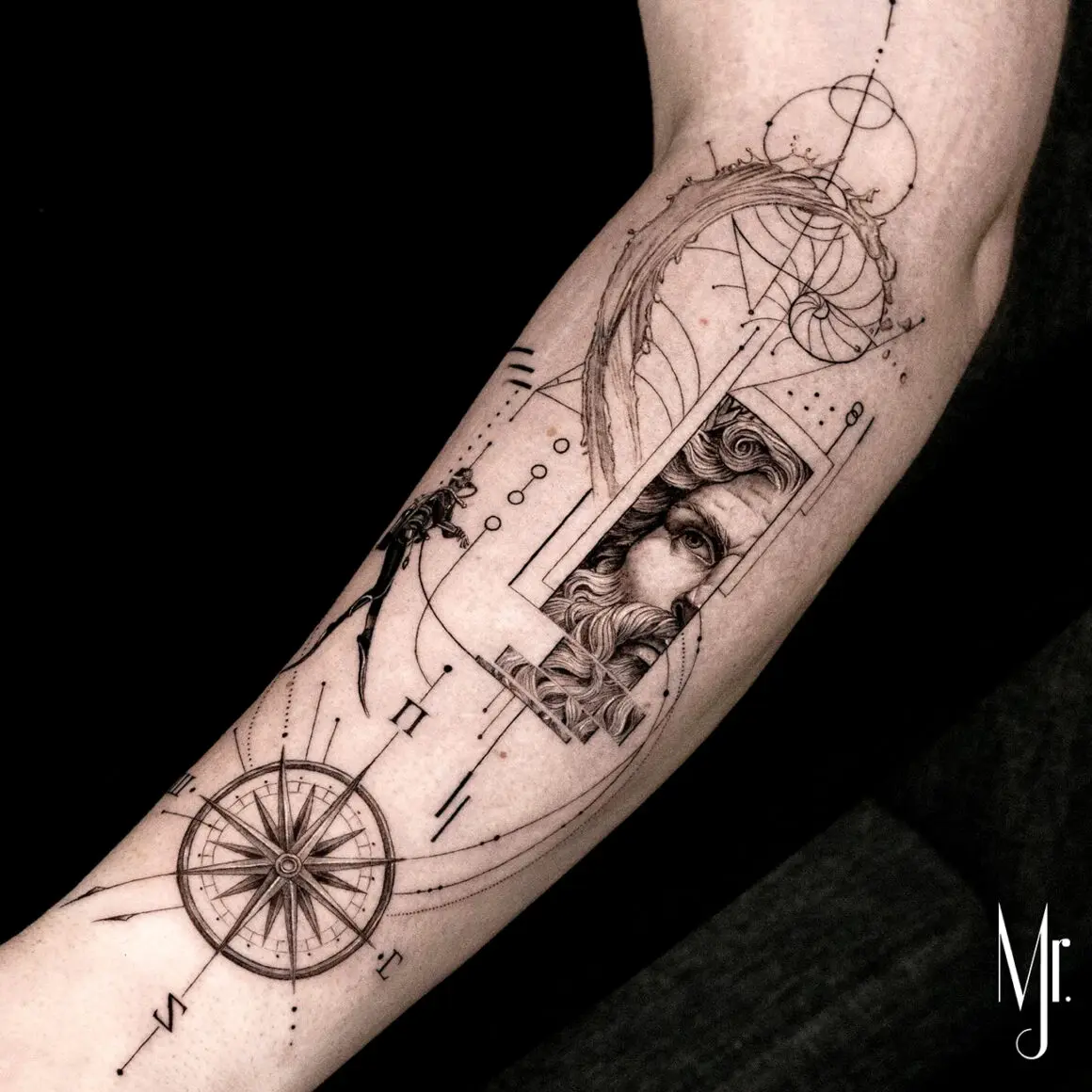
First Tattoo Psychology and Risk Mitigation
Fine line tattoos overwhelmingly attract first-time tattoo clients, particularly women over 25 who’ve contemplated tattoos for years before committing. The psychology driving these delayed decisions reveals important insights for artists serving this demographic.
Fear of regret represents the primary barrier to first tattoos. Fine line work mitigates this fear through several psychological mechanisms. The subtlety reduces commitment anxiety—if regret occurs, fine line tattoos are easier to ignore or remove. The sophistication alleviates concerns about ageing inappropriately. The minimal trauma reduces pain fear.
Social acceptance concerns strongly influence first tattoo decisions. Fine line tattoos feel “safer” regarding family reactions, workplace acceptance, and social judgement. Clients can “test” tattoo ownership without dramatic commitment, building confidence for potential future pieces.
Artists serving first-time clients must recognise and address these psychological needs. Extensive consultation discussing concerns, detailed explanation of processes, and reassurance about normalcy of anxieties builds trust. Understanding the courage required for first tattoos, regardless of size, ensures respectful, supportive experiences.
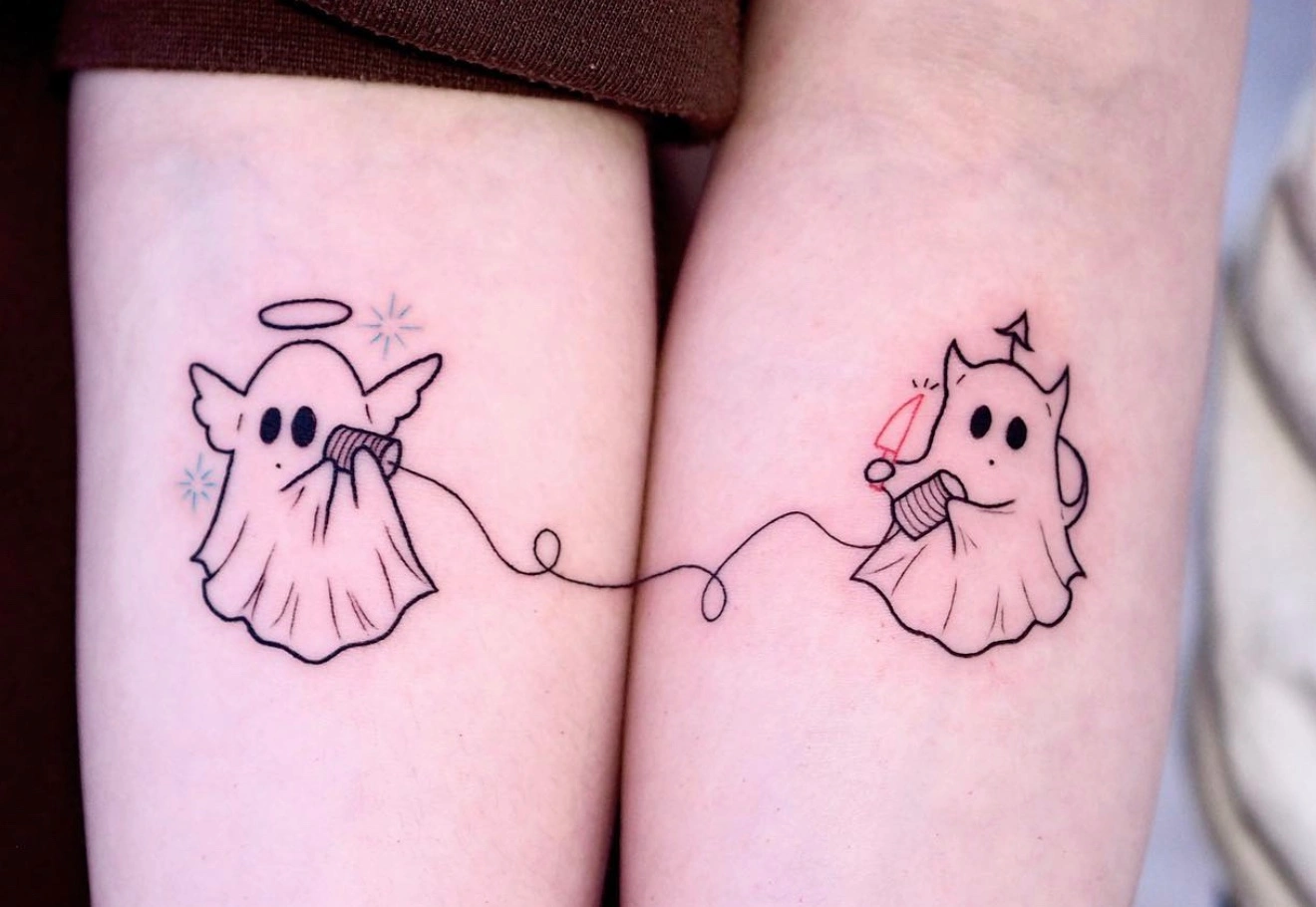
Professional Identity and Tattoo Choices
The relationship between professional identity and tattoo preferences significantly impacts fine line demand. Clients in conservative professions—law, finance, medicine, education—increasingly want tattoos but need discretion. Fine line work offers perfect compromise between self-expression and professional presentation.
The psychology involves compartmentalisation between professional and personal identities. These clients aren’t hiding their true selves but managing multiple authentic identities across different contexts. Fine line tattoos support this psychological flexibility through easy concealment and subtle revelation.
Career stage influences fine line preferences. Young professionals choosing fine line work often plan for unknown future career requirements. Established professionals feel secure enough for visible tattoos but prefer sophisticated rather than rebellious aesthetics. Retirees might choose fine line work as gentle rebellion after lifetime conformity.
Understanding professional identity psychology helps artists provide appropriate guidance. Discussing placement regarding clothing choices, considering career trajectories when planning pieces, and respecting clients’ complex relationships with professional presentation builds trust and ensures satisfaction.
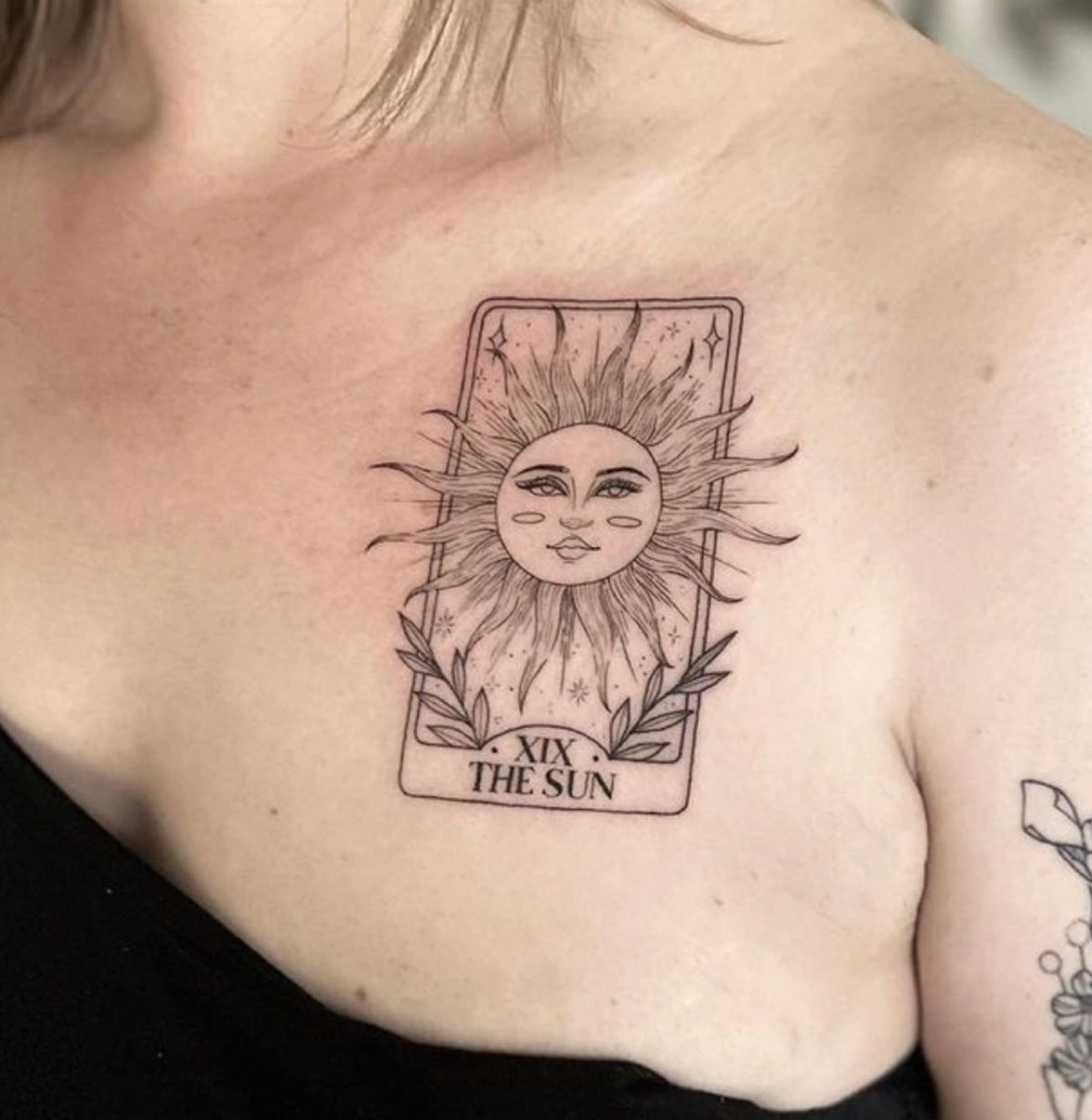
The Instagram Effect on Tattoo Psychology
Social media, particularly Instagram, profoundly influences fine line tattoo psychology. The platform’s visual nature and algorithmic preferences shape both aesthetic choices and psychological motivations for modern tattoo clients.
The “Instagrammability” of fine line tattoos drives many decisions. These delicate designs photograph beautifully, creating shareable content that generates likes and comments. The psychological reward of social media validation influences design choices toward fine line aesthetics proven to perform well online.
Comparison psychology through social media exposure affects client expectations. Constant exposure to idealised fine line work creates specific aesthetic standards and unrealistic healing expectations. Clients arrive with screenshots of viral posts expecting identical results regardless of skin type, placement, or artistic variation.
The permanence paradox emerges where clients want tattoos lasting forever while maintaining fresh-from-studio appearance for social media. This psychological conflict requires careful navigation, setting realistic expectations about healing, ageing, and photograph versus reality differences.
Artists must understand social media’s psychological impact while maintaining artistic integrity. Educating clients about realistic outcomes, discussing how tattoos age versus how they photograph, and managing Instagram-influenced expectations ensures long-term satisfaction beyond initial posts.
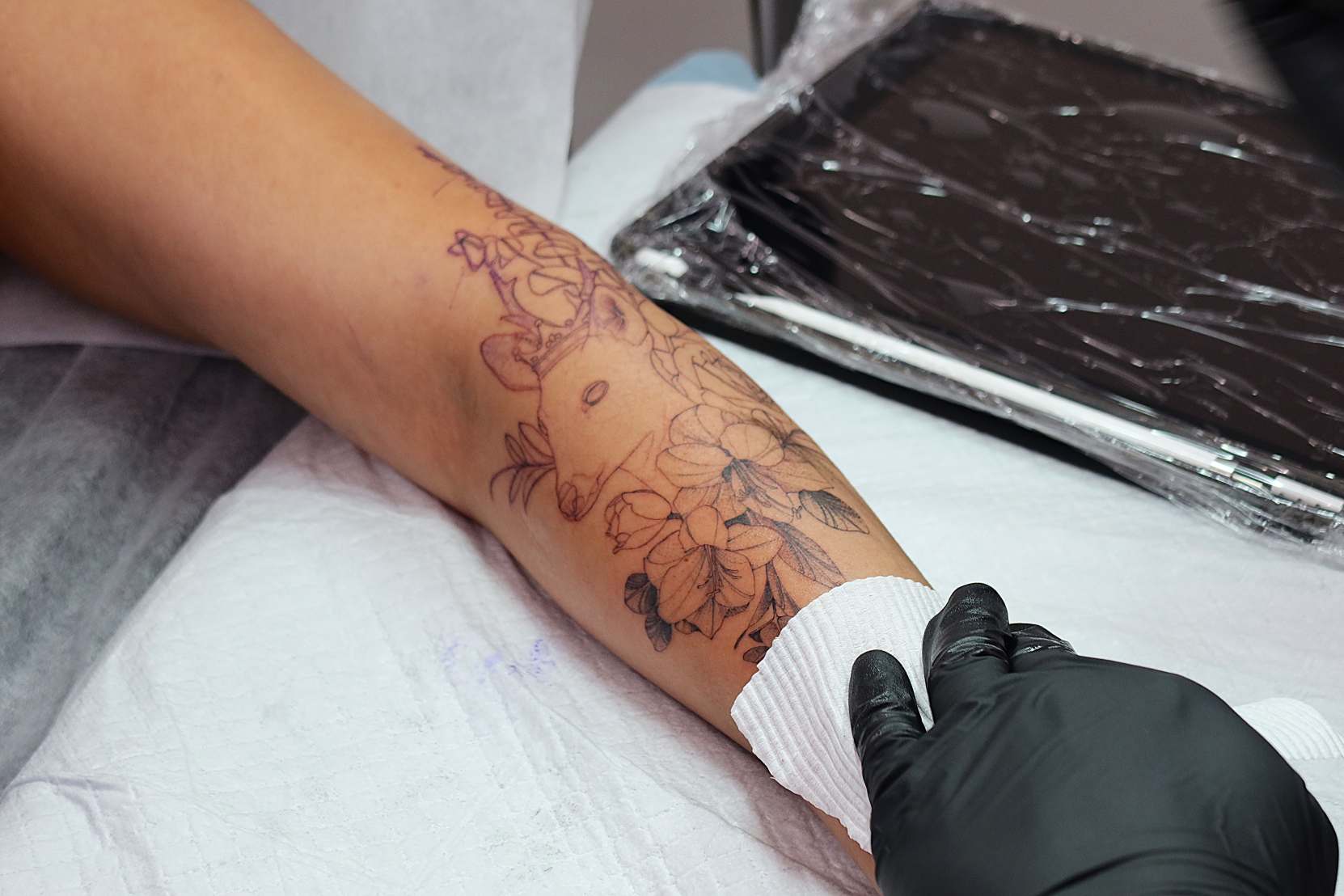
Emotional Attachment and Meaning-Making
Fine line clients typically exhibit stronger emotional attachment to tattoo meanings than traditional tattoo clients. The decision to permanently mark skin with subtle designs often follows significant life events, personal transformations, or meaning-making processes.
Memorial tattoos in fine line style reflect different grief psychology than bold memorial pieces. The subtlety allows private remembrance without public declaration. Clients can carry loved ones’ memory without explaining loss to observers. This private meaning-making provides comfort without requiring emotional labour.
Milestone marking through fine line tattoos—births, recoveries, achievements—represents self-acknowledgment rather than public announcement. The psychology involves internal validation and personal narrative construction. These clients document their journey for themselves, not audience approval.
Symbolic representation in fine line work often involves abstraction requiring explanation. This creates intimate sharing opportunities where clients choose when and with whom to reveal meanings. The psychological control over narrative disclosure empowers clients in their storytelling.
Understanding emotional dimensions helps artists hold space for clients’ stories while maintaining professional boundaries. Recognising tattoos as therapeutic outlets without becoming therapists requires delicate balance achieved through training and experience.
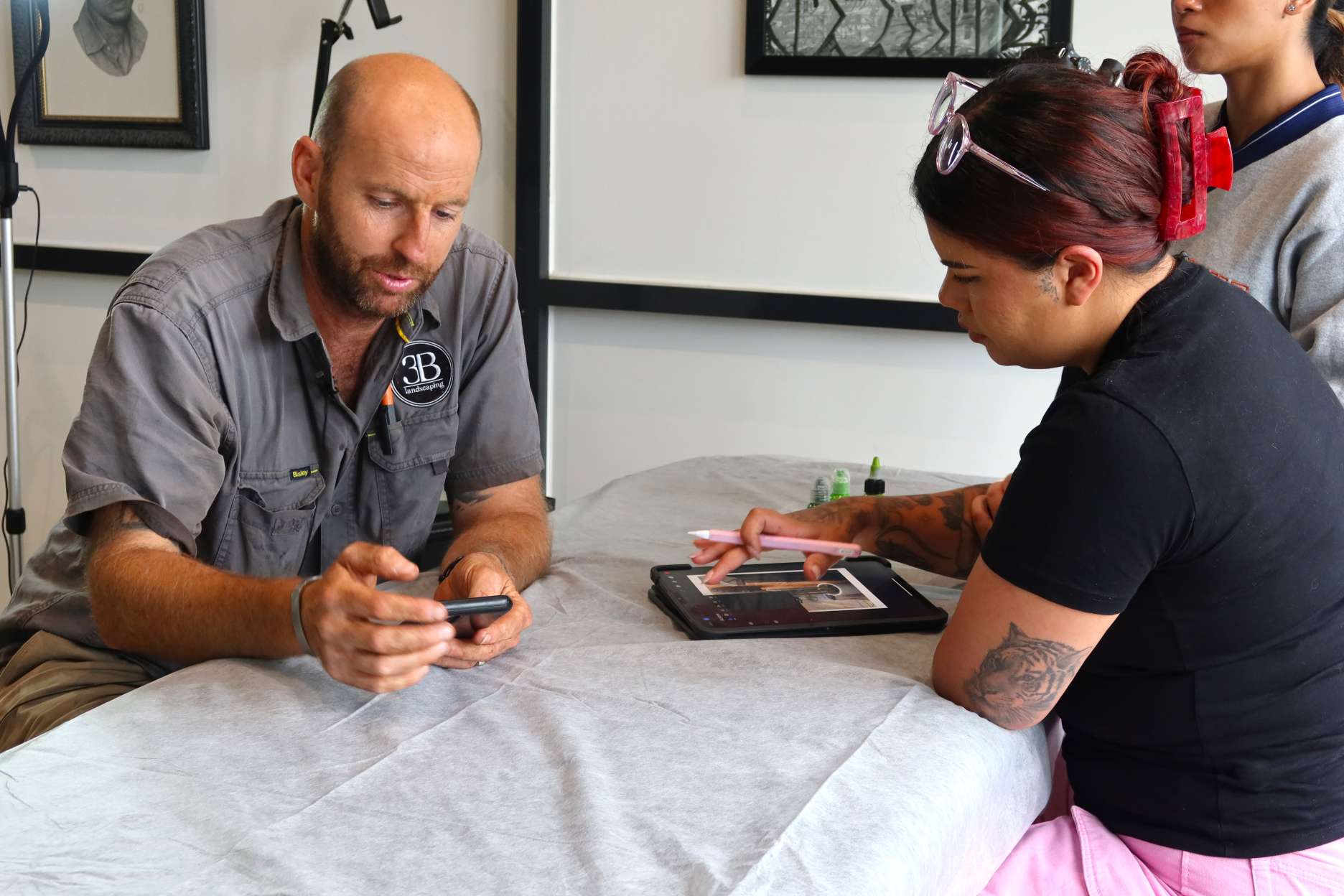
Building Trust Through Psychological Understanding
Success in fine line tattooing requires understanding client psychology as thoroughly as technical execution. Clients choosing fine line work often exhibit higher anxiety about outcomes, requiring different reassurance than confident traditional tattoo collectors.
Perfectionism psychology common among fine line clients creates specific challenges. These clients scrutinise every line, obsess over symmetry, and experience disproportionate distress over minor imperfections. Understanding perfectionism as anxiety expression rather than criticism helps artists respond supportively.
Control needs manifest throughout the tattoo process. Fine line clients often require extensive consultation, multiple design revisions, and detailed process explanation. Recognising these as anxiety management rather than difficulty builds patience and empathy.
Trust-building with psychologically sophisticated fine line clients requires demonstrating competence beyond technical skill. Showing emotional intelligence, respecting boundaries, and validating concerns creates safe spaces for vulnerable expression through tattoo art.

Leveraging Psychology for Business Success
Understanding fine line client psychology transforms business operations from transactional to relational. This psychological awareness influences marketing messages, consultation processes, and service delivery in ways that attract and retain ideal clients.
Marketing that acknowledges psychological motivations resonates more than feature-focused promotion. Emphasising meaning-making, personal narrative, and subtle beauty attracts clients seeking those experiences. Avoiding aggressive imagery or rebellious messaging prevents alienating fine line demographics.
Consultation processes incorporating psychological understanding yield better outcomes. Allowing extended discussion time, validating concerns, and exploring meanings creates connection beyond service provision. These investments in relationship-building generate lifetime client value through loyalty and referrals.
Service experiences aligned with psychological needs command premium pricing. Creating calm environments, offering privacy, and providing emotional support justifies higher rates. Fine line clients happily pay for experiences matching their psychological expectations.
A comprehensive fine line tattoo course preparing artists for psychological dimensions alongside technical skills creates complete professionals. Understanding why clients choose fine line work enables delivering experiences exceeding expectations. This psychological sophistication differentiates specialists from technicians, building sustainable practices serving grateful clients seeking understanding alongside artistry.
